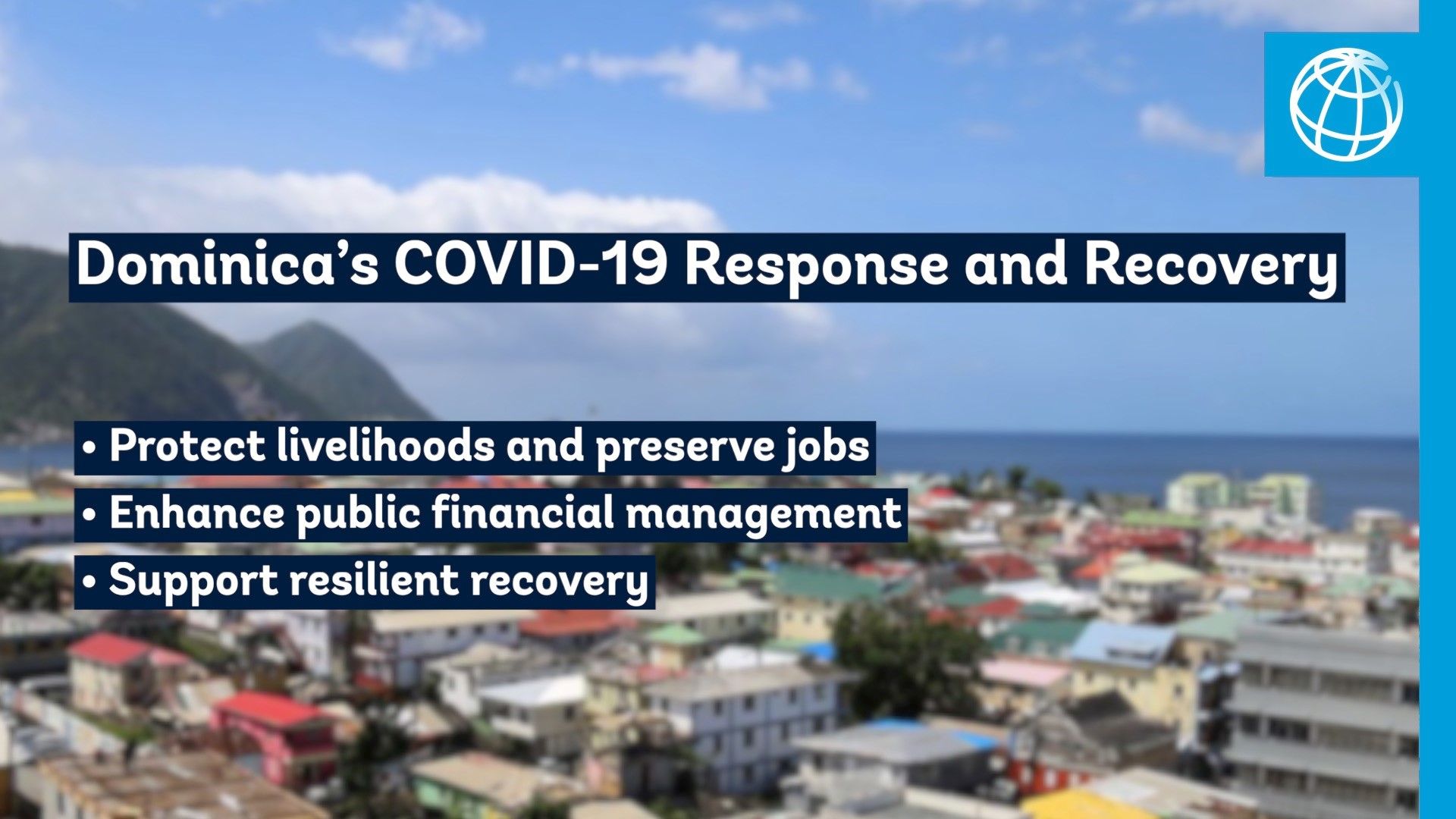World Bank Approves US$25 Million Credit for Dominica’s COVID-19 Response and Recovery
Media Release Courtesy The World Bank
WASHINGTON — The World Bank Board of Executive Directors approved yesterday the US$25 million First COVID-19 Response and Recovery Development Policy Credit. This is Dominica’s first World Bank budget support operation, and it is the first in a series of two quick-disbursing credits.
The operation aims to support Dominica’s COVID-19 response to save lives, livelihoods, and jobs, while laying the foundation for longer-term economic recovery. It is aligned with the country’s National Resilience Development Strategy and COVID-19 response strategy.
“The pandemic has once again highlighted the importance of increasing our country’s resilience. The Government of Dominica is focused on first saving lives, protecting livelihoods, and preserving jobs, and next on strengthening fiscal policies, public financial management and debt transparency for a strong and resilient recovery,” said Roosevelt Skerrit, Prime Minister of Dominica. “The government is fully committed to the reforms under this operation, which is timely and will help Dominica to build back better in a sustainable way.”
“The COVID-19 pandemic struck at a time when Dominica’s economy was still recovering from past natural disasters,” said Tahseen Sayed, World Bank Country Director for the Caribbean. “The World Bank was proud to be the first among Dominica’s partners to assist in the island’s recovery after the devastating 2017 hurricane. Today, we are pleased to provide the first-ever World Bank development policy financing to support the country’s efforts to recover from the extraordinary socio-economic impacts of the COVID-19 pandemic.”
This Development Policy Credit includes measures to support the eventual reopening of the tourism sector while protecting public health, including the adoption of standardized COVID-19 testing protocols, and the approval of health protocols for the tourism and hospitality industry. Initiatives to protect jobs include tax reforms that encourage companies to commit to retaining their employees. The operation also includes policy reforms to strengthen the country’s recovery by enhancing fiscal policies, public financial management, and debt transparency for a resilient recovery.
The financing, which is from the International Development Association (IDA), is interest-free with a maturity of 40 years, including a grace period of 10 years.
World Bank Group COVID-19 Response:
The World Bank Group, one of the largest sources of funding and knowledge for developing countries, is taking broad, fast action to help developing countries strengthen their pandemic response. We are increasing disease surveillance, improving public health interventions, and helping the private sector continue to operate and sustain jobs. Over the next 15 months, we will be deploying up to US$160 billion in financial support to help countries protect the poor and vulnerable, support businesses, and bolster economic recovery, including $50 billion of new IDA resources in grants or highly concessional terms.
